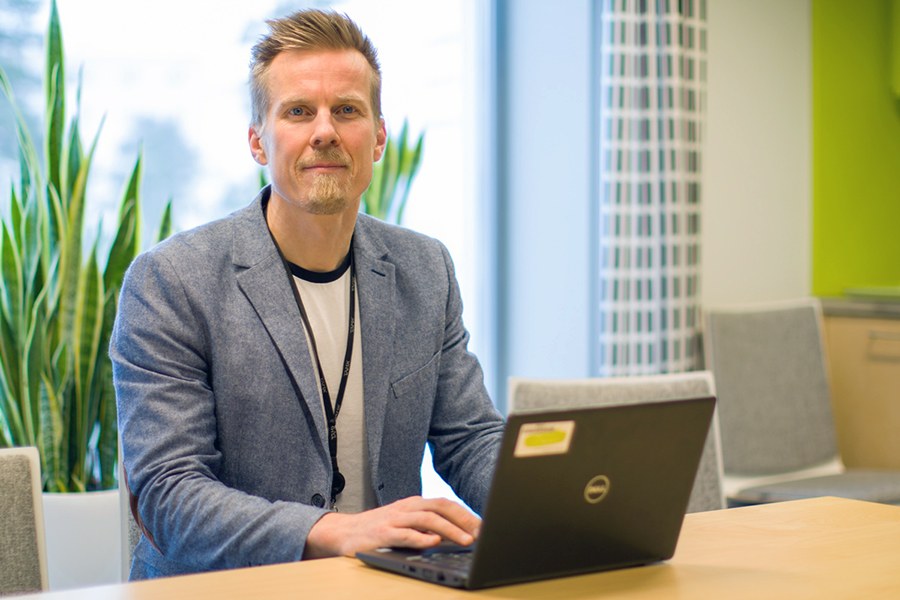Communality and participation increase security in educational institutions

Healthy work and study environment and the developing security culture have a big role in educational institution security.
“Young people often make themselves guilty of crimes and vandalism thoughtlessly or seeking thrills. Sometimes they may also fight against societal boundaries. Young people may commit an act to show which reference group they belong to,” Project Manager Henri Rikander from Tampere University of Applied Sciences tells.
According to Rikander, the broken windows theory has to be considered. One broken window invites larger and more serious crimes.
“Graffiti also invite more graffiti. Because of this, broken windows have to be repaired and graffiti cleaned immediately. It tells the community that these matters are intervened in,” Rikander points out.
Well members are safe members
Bullying and harassment situations taking place in educational institutions should be considered closer. Students should also pay attention to changes in each others’ behaviour. Better preparedness is needed for intervention in bullying and harassment at schools and educational institutions.
“Well students and staff members are safe community members. Building of communality prevents social exclusion, bullying and drift into periphery,” Senior Lecturer Jiri Vilppola states.
Security concerns all and it is important that all participate in security work, emphasise Rikander and Vilppola.
“If a student notices changes in another student’s behaviour or thinking, it is a weak signal but an alarm signal. It would be important to identify and intervene in such weak signals,” Rikander instructs.
Security is a citizenship duty and professional skill
Educational institutions’ security plans have to be in order. Every staff member and student should have a role in security work and its planning, practice, development and debriefing.
According to Vilppola and Rikander, participation is talked a lot but it should be implemented at all educational levels starting from the primary school. Everyone should have the possibility to participate in constructing the disciplinary regulations. However, the security culture is still quite unorganised in our educational institutions.

Security concerns all and it is important that all participate in security work, tells Senior Lecturer Jiri Vilppola
“Security is everyday doing and seeing. It is important to be seen and heard as well as to be approved and belong to a community. Extreme manners may sometimes be resorted to achieve them,” Vilppola says.
According to Vilppola, it is possible to see security in educational institutions as an onion. Students are in the core and teachers, other staff, teams and fields come towards the skin of the onion. The whole educational institution community is covered.
“Security work includes planning, organisation and building of the security calendar and security culture at the level of the management as well as the security organisation. The core is reached through all the layers,” Vilppola describes.
Educational institution security can be studied online
Tampere University of Applied Sciences’ School of Professional Teacher Education is organising a third large educational institution security project called Turvallisuus kuuluu kaikille. Its target groups are basic education, general upper secondary education, vocational upper secondary education and non-formal adult education.
“Our first project was Amis Turvis which was followed by the Turvista verkosta project. After them started the Turvallisuus kuuluu kaikille project. An output of the Turvista verkossa 2 project was a self-study package on educational institution security. It is an open self-study material as teachers need clear instructions on how to handle different situations,” Vilppola tells.
According to Vilppola, security projects have an important role in developing the security culture in vocational upper secondary education and professional teacher education.
Projects:
TurvisVerkko project, Senior Lecturer, Master of Education, Jiri Vilppola, School of Professional Teacher Education, Pedagogical RDI, 040 6482 756, jiri.vilppola [at] tuni.fi
Turvallisuus kuuluu kaikille project, Project Manager, Doctor of Law, Henri Rikander, School of Professional Teacher Education, Pedagogical RDI, 050 4421 873, henri.rikander [at] tuni.fi
Text: Arja Lundan
Photographs: Arja Lundan and Jaakko Saarilampi





